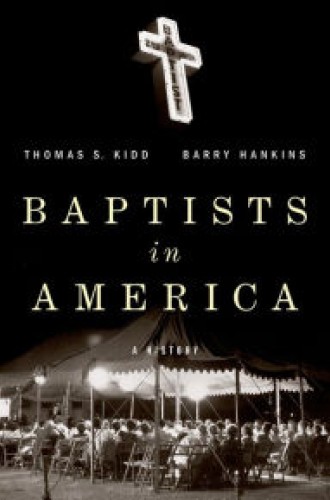A diverse communion
Baylor history professors Thomas Kidd and Barry Hankins describe a dilemma Baptists confronted during the time of slavery in the South. Baptists supported chattel slavery on biblical grounds, but when slaves’ marriages were broken up because one partner was sold or moved away with the master, pious slaves were put in a bind. “Could they legally remarry if they had no reasonable hope of seeing their current spouse again?” The South Carolina Baptist association’s answer was not to rule on the issue, but rather to leave each church to decide. Thus a “biblical people” were forced to renegotiate the nature of Christian marriage in order to protect chattel slavery.
This account illustrates a major thesis of the book: Baptists began as a sectarian movement characterized by a powerful sense of dissent, primarily against religious establishments and privileged state churches. Baptist theology and praxis—autonomous churches, priesthood of the laity, distinct conversion experience, believer’s baptism, and a rabid egalitarianism—challenged the sentiments of more connectional, hierarchical Christian groups. But Baptist success in evangelization, coupled with their democratic polity, drew large numbers of adherents. This growth increased cultural privilege, which for some Baptist groups led to a growing support for the social and theological status quo.
Kidd and Hankins remind us that Baptists are a second-generation Reformation communion operating at both ends of the theological spectrum—from the Arminianism of the Free Will Baptists to the Calvinism of the Primitive Baptists, with assorted Anabaptist and modified Calvinist influences stirred in for good measure and consistent controversy.





